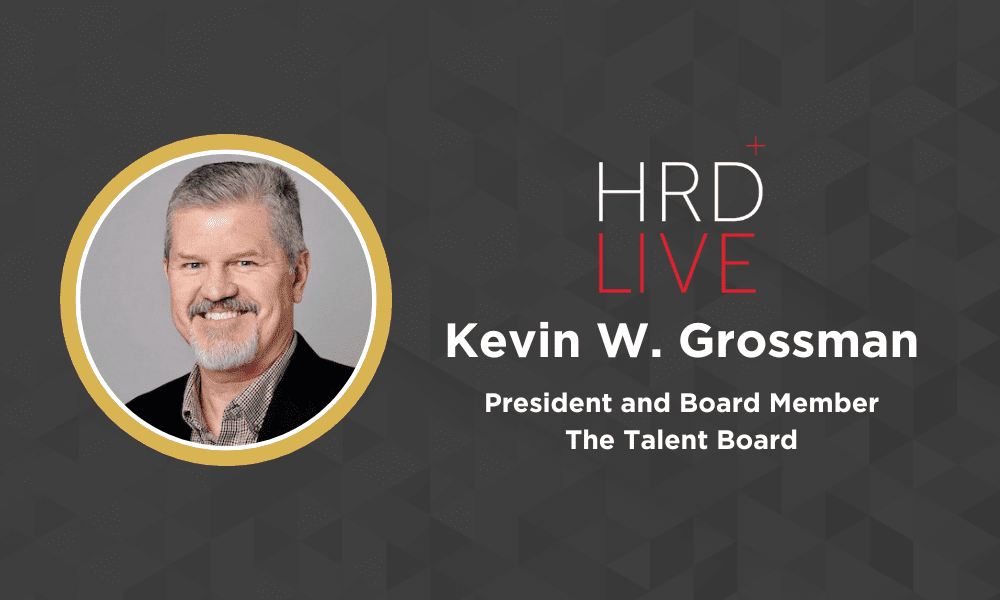How can we curtail the rise of candidate resentment?
- 3 Min Read
Kevin W. Grossman, President and Board Member, The Talent Board, analyzes why candidate resentment remains high and how organizations can curtail this issue to prevent long term damage to their employer brand
- Author: Benjamin Broomfield
- Date published: Oct 18, 2023
- Categories

Podcast: Play in new window | Download Subscribe: RSS
The Talent Board has conducted benchmark research on candidate experience for 12 years. In July 2023, it reported candidate resentment remains high in North America at nearly 13% and continues to climb in EMEA, APAC, and Latin America. It defines candidate resentment as “the percentage of job candidates who said they would sever their relationship with an employer because of a poor candidate experience.”
What is behind this global trend of candidate resentment? Kevin W. Grossman, President and Board Member, The Talent Board, joins the HRD Live podcast to explore these findings and explore the detrimental effect candidate resentment can have on the overall employee experience.
What causes candidate resentment?
The past twelve months have been tough on the recruiting industry. “A lot of recruiters have lost their jobs, teams have gotten leaner, [and] there’s been a lot of churn,” says Grossman. Burnout is an ever-present issue in recruitment with many individuals choosing to leave the profession altogether. “That, unfortunately, has impacted how recruiting and hiring gets delivered,” he continues.
The Talent Board consistently finds broken feedback loops and communication to be the biggest cause of candidate resentment. Whilst it is unrealistic to expect a small talent acquisition team to respond to every single applicant for a job listing with several hundred applications, those who enter the interview process do require more care and attention than plenty of teams, organizations, and industries are willing or able to provide.
Tackling candidate resentment
When candidates are resentful, Grossman emphasizes that they are willing to sever the relationship with the potential employer. “We hear it every single year in our data and research,” he explains. “To have brand advocates or not…these are the impacts long term.
Grossman provides a variety of analyses and recommendations for organizations aiming to improve the candidate experience. In this HRD Live Podcast episode we cover:
- The trends causing candidate resentment to rise or stay at high levels
- The steps HR teams can take to circumvent this issue including how best to measure feedback
- How it can impact the employer brand and cause long term issues for organizations and talent acquisition teams
Timestamps
00:10 – Introduction
00:44 – Candidate resentment is consistently high in the US and climbing in EMEA and elsewhere in the world – what are TA teams continuing to get wrong?
05:21 – Are there any new trends – or bad practices – emerging that are causing candidate resentment to rise or stay high?
08:33 – What fundamental steps can HR teams take to ensure their TA practices are not causing high levels of candidate resentment?
14:28 – How can organizations measure and encourage feedback from candidates to iterate and improve their experience?
19:38 – What is the long-term impact for organizations that do not address resentment?
Kevin is the Talent Board President and board member, responsible for the candidate experience awards worldwide. He is also the co-host of the #worktrends podcast, with Talent Culture. Kevin is a well-known blogger, known for his “HR business” blogs. He is also the author of the book, ‘Tech Job Hunt Handbook’ inspiring candidates worldwide, and preparing organizations for the best candidate experience.










